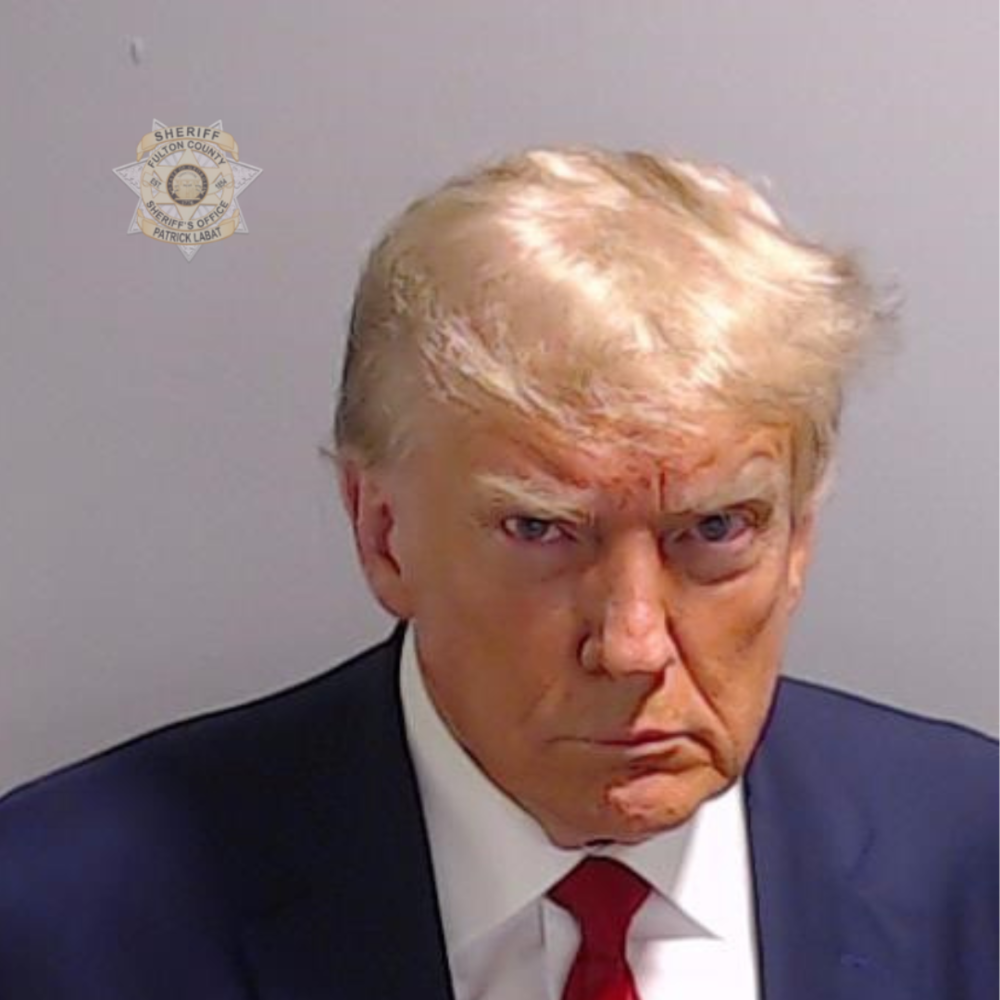
Caption
Donald Trump was booked in the Fulton County Courthouse on charges involving a wide-ranging scheme to undermine democracy in Georgia.
Credit: Fulton County Sheriff's Office
LISTEN: American University history professor Allan Lichtman talks about the ex-presidential mugshot and how Donald Trump's indictment won't affect his prediction for who'll be the next president.

Donald Trump was booked in the Fulton County Courthouse on charges involving a wide-ranging scheme to undermine democracy in Georgia.
Former President Donald Trump turned himself in to the Fulton County jail last night on charges that he and others illegally attempted to overturn Georgia’s 2020 election results.
It’s the fourth time this year that Trump has been booked on criminal charges.
For a bit of context, GPB's Orlando Montoya spoke after Trump's appearance in Atlanta with American University history professor Allan Lichtman, the author of 11 books, including The Case for Impeachment about Donald Trump.
Orlando Montoya: As a presidential historian, what struck you most about the events of this evening, including the pictures we've been seeing on television?
Allan Lichtman: I think what we saw really brings home the fact that this is the most serious indictment in the history of the United States, because it accuses Donald Trump of orchestrating a conspiracy, a wide-ranging conspiracy in Georgia and beyond, to sabotage our democracy and steal an election.
Orlando Montoya: Will these indictments, especially the one in Georgia, make it more likely that a future Democratic ex-president will face charges, especially by a Republican prosecutor?
Allan Lichtman: Possibly so. But let's not forget, these charges are not because of partisan Democratic motivations. These charges result from what Trump did himself. You know, Donald Trump just said in his post-mugshot interview that he has a right to challenge an election. Absolutely correct. And he did that. There were 60 cases and he lost every single one of them. That should have been the end of it. That's the right he had. He does not have a right, once he's gone through the legal process, to commit crimes like setting up fake electors or pressuring elected officials to keep himself in power. You know, Donald Trump's mugshot is quite revealing. I call it his “Mussolini pose.” Donald Trump loves dictators. In that Tucker Carlson interview, he bragged about his good relationship with murderous dictators. Donald Trump would love to have none of the constraints of democracy that are imposed upon American leaders. And so that “Mussolini pose” is indicative of what Donald Trump is all about.
Orlando Montoya: Your prediction system, Keys to the White House, has correctly predicted the outcomes of all U.S. presidential elections since 1984. What's your read on how this will affect the 2024 presidential election?
Allan Lichtman: Well, the truth is, it doesn't affect the Keys to the White House at all. The Keys to the White House are based upon the proposition that presidential elections are votes up or down on the strength and performance of the White House party, the Democrats under Joe Biden. There's only one key that pertains to the identity of the challenger. That's a very high threshold key. It asks whether the challenging candidate is a Franklin Roosevelt or Ronald Reagan: the once-in-a-generation, broadly inspirational type of candidate. And even before this, neither Donald Trump nor any of the other Republican aspirants fit that model. That said, the Keys to the White House are based on history. We've never seen anything, historically, like the indictment of a former president and a presidential candidate.
Orlando Montoya: Once this case works its way through the courts and we have a resolution, what will our country look like?
Allan Lichtman: Well, I hope our country will look a lot better. You know, Trump said this is a sad day. It's not a sad day. I hope the country would come together and realize our democracy is precious and needs to be protected like all precious things. Democracy can be destroyed.
Orlando Montoya: American University history professor Allan Lichtman, thank you for joining me today.
Allan Lichtman: My great pleasure.